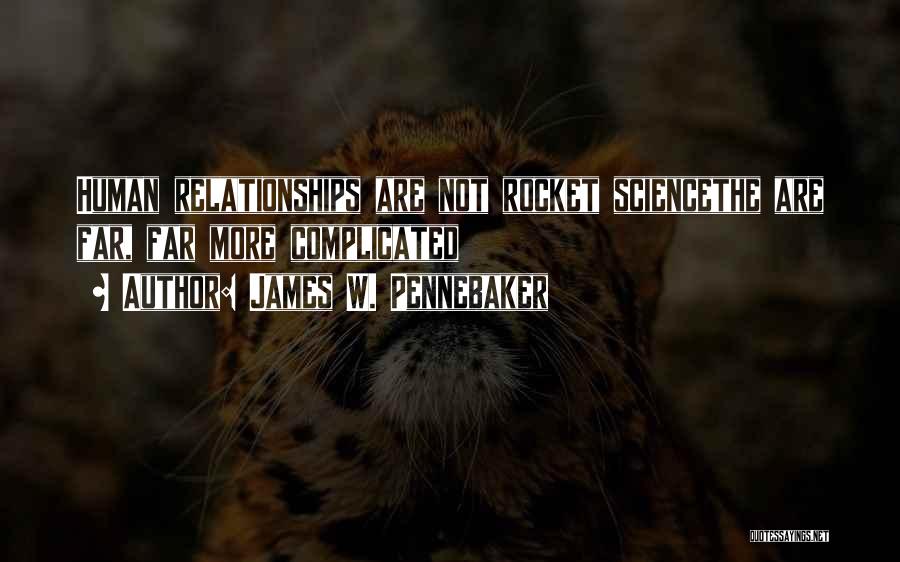James W. Pennebaker Quotes & Sayings
Enjoy the top 17 famous quotes, sayings and quotations by James W. Pennebaker.
Famous Quotes By James W. Pennebaker
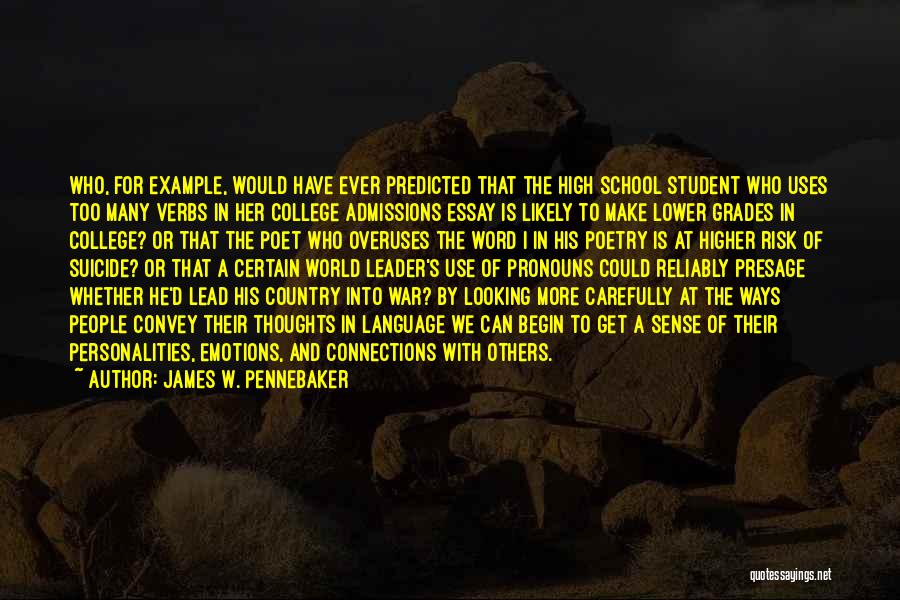
Who, for example, would have ever predicted that the high school student who uses too many verbs in her college admissions essay is likely to make lower grades in college? Or that the poet who overuses the word I in his poetry is at higher risk of suicide? Or that a certain world leader's use of pronouns could reliably presage whether he'd lead his country into war? By looking more carefully at the ways people convey their thoughts in language we can begin to get a sense of their personalities, emotions, and connections with others. — James W. Pennebaker

The emotional findings, then, suggest that to gain the most benefit from writing about life's traumas, acknowledge the negative but celebrate the positive. — James W. Pennebaker
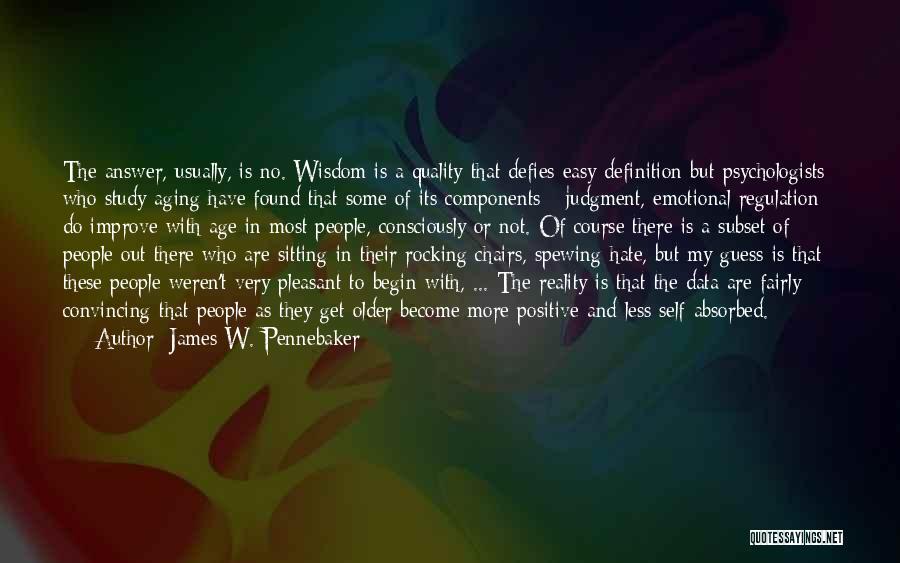
The answer, usually, is no. Wisdom is a quality that defies easy definition but psychologists who study aging have found that some of its components - judgment, emotional regulation - do improve with age in most people, consciously or not. Of course there is a subset of people out there who are sitting in their rocking chairs, spewing hate, but my guess is that these people weren't very pleasant to begin with, ... The reality is that the data are fairly convincing that people as they get older become more positive and less self-absorbed. — James W. Pennebaker

Early 1990s, Deborah Tannen, a linguist at Georgetown University, attracted international notice with her book You Just Don't Understand. Her book, which was on the New York Times bestseller list for over four years, argued that men and women often talk past each other without appreciating that the other sex is almost another culture. Women, for example, are highly attentive to the thoughts and feelings of others; men are less so. Women view men's speaking styles as blunt and uncaring; men view women's as indirect and obscure. — James W. Pennebaker
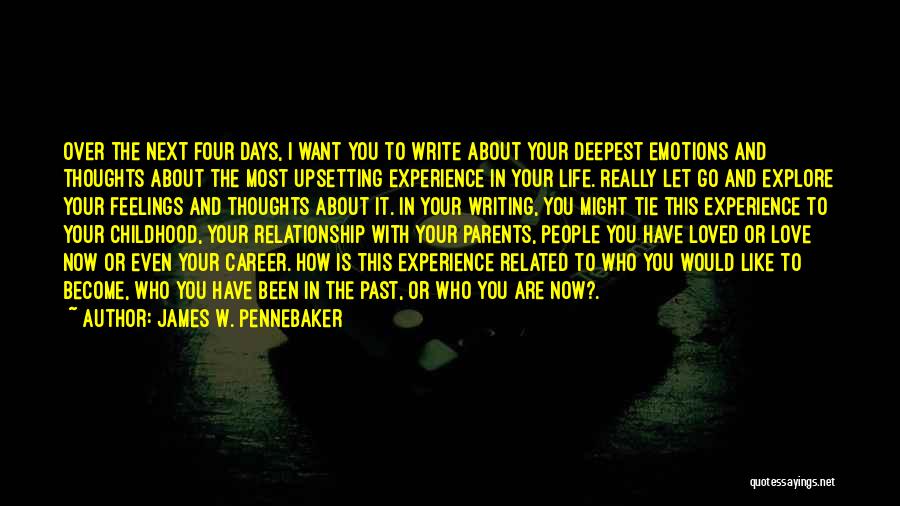
Over the next four days, I want you to write about your deepest emotions and thoughts about the most upsetting experience in your life. Really let go and explore your feelings and thoughts about it. In your writing, you might tie this experience to your childhood, your relationship with your parents, people you have loved or love now or even your career. How is this experience related to who you would like to become, who you have been in the past, or who you are now?. — James W. Pennebaker
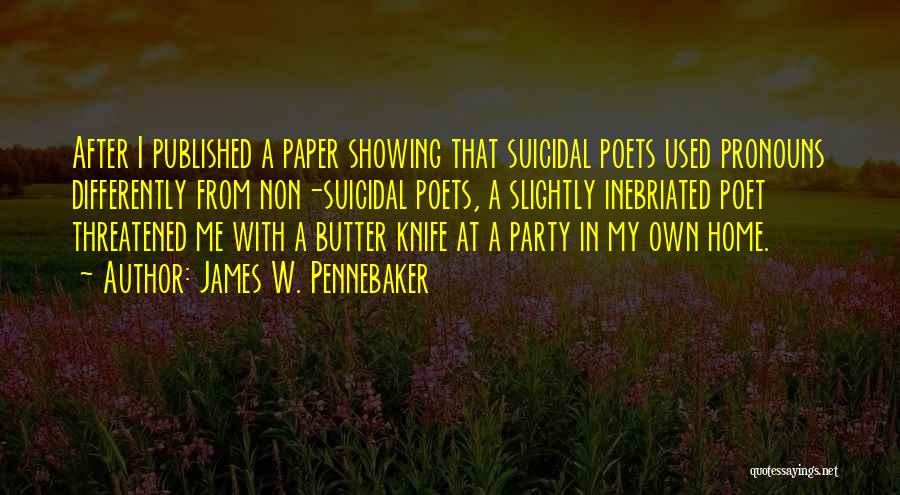
After I published a paper showing that suicidal poets used pronouns differently from non-suicidal poets, a slightly inebriated poet threatened me with a butter knife at a party in my own home. — James W. Pennebaker
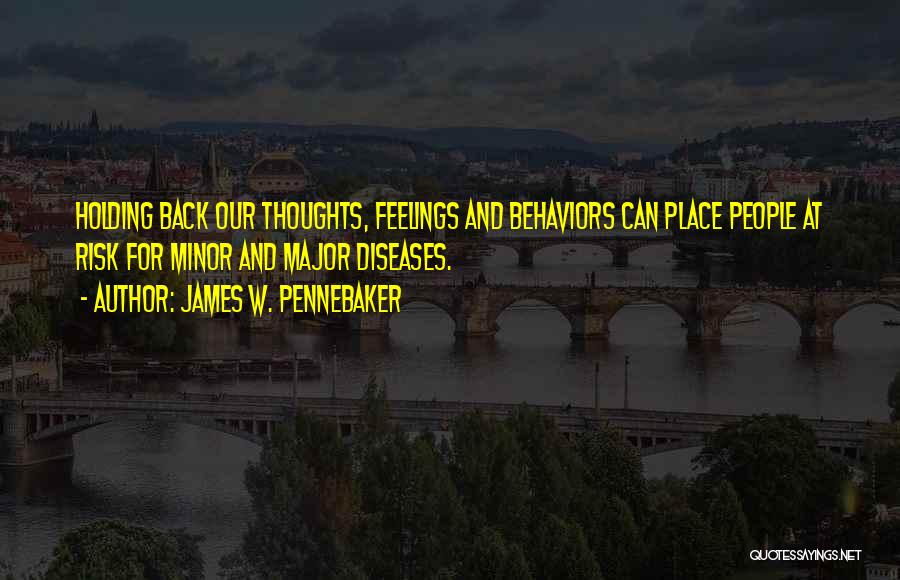
Holding back our thoughts, feelings and behaviors can place people at risk for minor and major diseases. — James W. Pennebaker
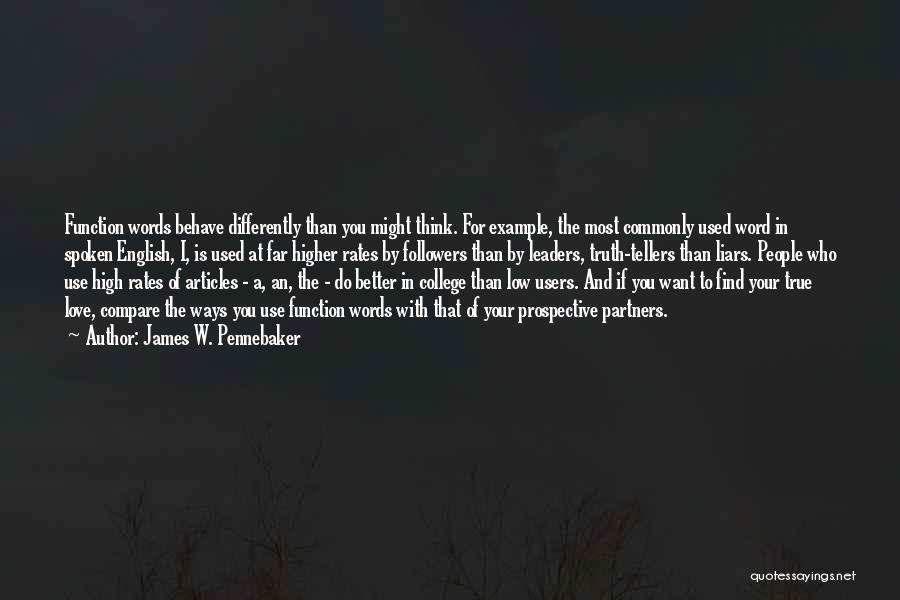
Function words behave differently than you might think. For example, the most commonly used word in spoken English, I, is used at far higher rates by followers than by leaders, truth-tellers than liars. People who use high rates of articles - a, an, the - do better in college than low users. And if you want to find your true love, compare the ways you use function words with that of your prospective partners. — James W. Pennebaker
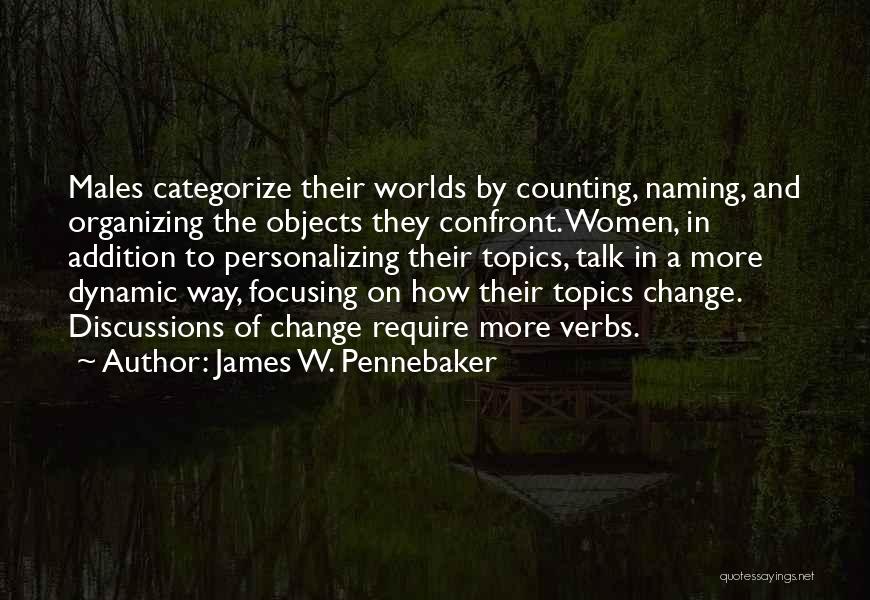
Males categorize their worlds by counting, naming, and organizing the objects they confront. Women, in addition to personalizing their topics, talk in a more dynamic way, focusing on how their topics change. Discussions of change require more verbs. — James W. Pennebaker
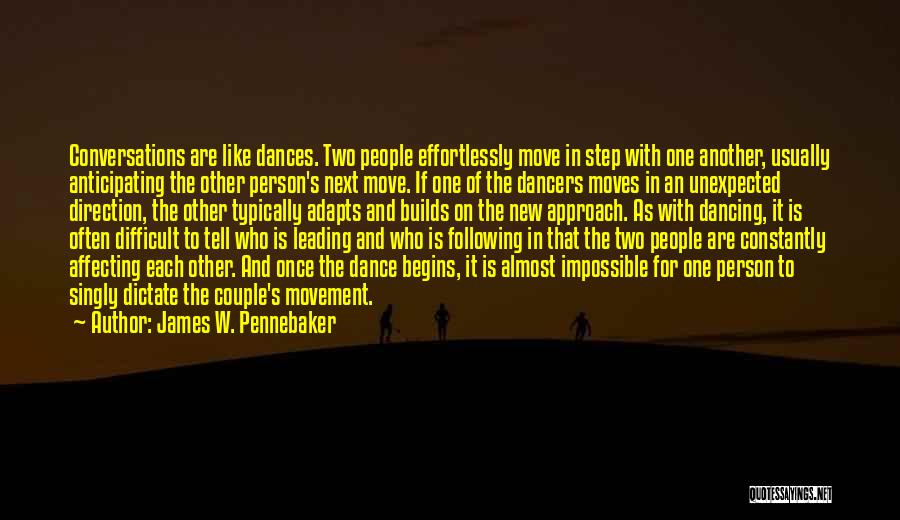
Conversations are like dances. Two people effortlessly move in step with one another, usually anticipating the other person's next move. If one of the dancers moves in an unexpected direction, the other typically adapts and builds on the new approach. As with dancing, it is often difficult to tell who is leading and who is following in that the two people are constantly affecting each other. And once the dance begins, it is almost impossible for one person to singly dictate the couple's movement. — James W. Pennebaker
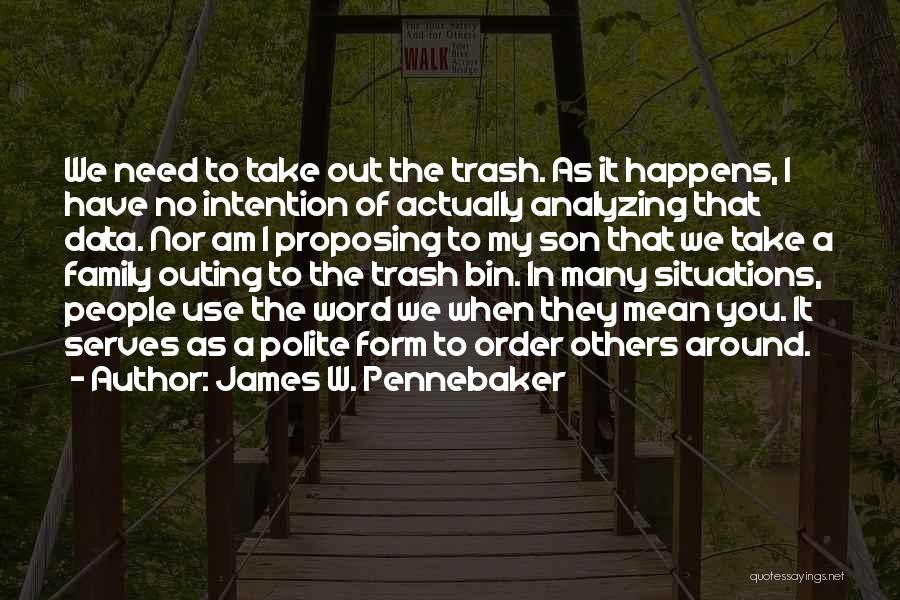
We need to take out the trash. As it happens, I have no intention of actually analyzing that data. Nor am I proposing to my son that we take a family outing to the trash bin. In many situations, people use the word we when they mean you. It serves as a polite form to order others around. — James W. Pennebaker

If you are looking for a lover, a job, a new house, or a serial killer, Snoop is for you. It's great science and a fun read by a world-renowned personality researcher. — James W. Pennebaker
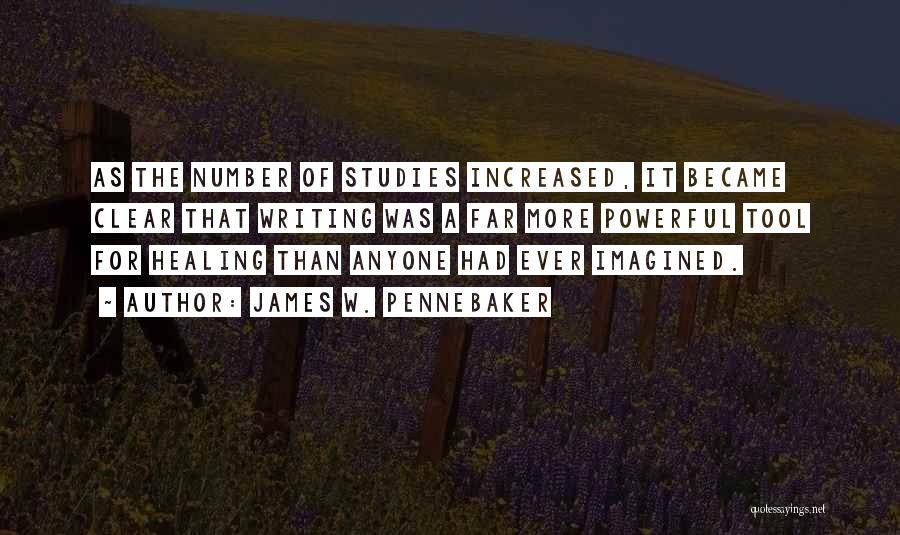
As the number of studies increased, it became clear that writing was a far more powerful tool for healing than anyone had ever imagined. — James W. Pennebaker
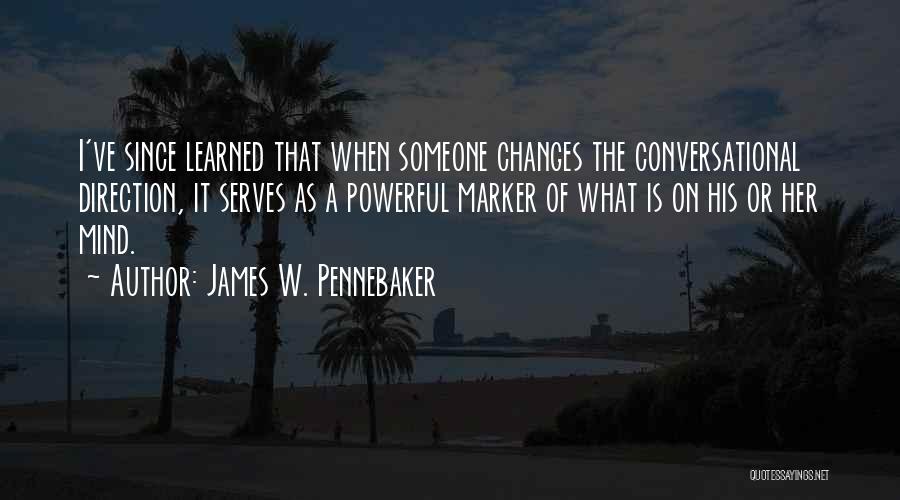
I've since learned that when someone changes the conversational direction, it serves as a powerful marker of what is on his or her mind. — James W. Pennebaker
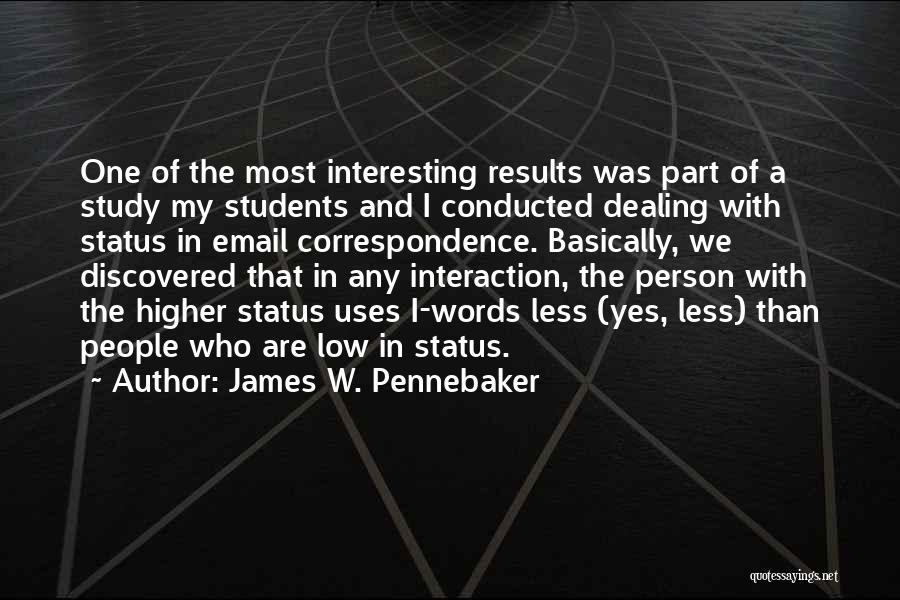
One of the most interesting results was part of a study my students and I conducted dealing with status in email correspondence. Basically, we discovered that in any interaction, the person with the higher status uses I-words less (yes, less) than people who are low in status. — James W. Pennebaker
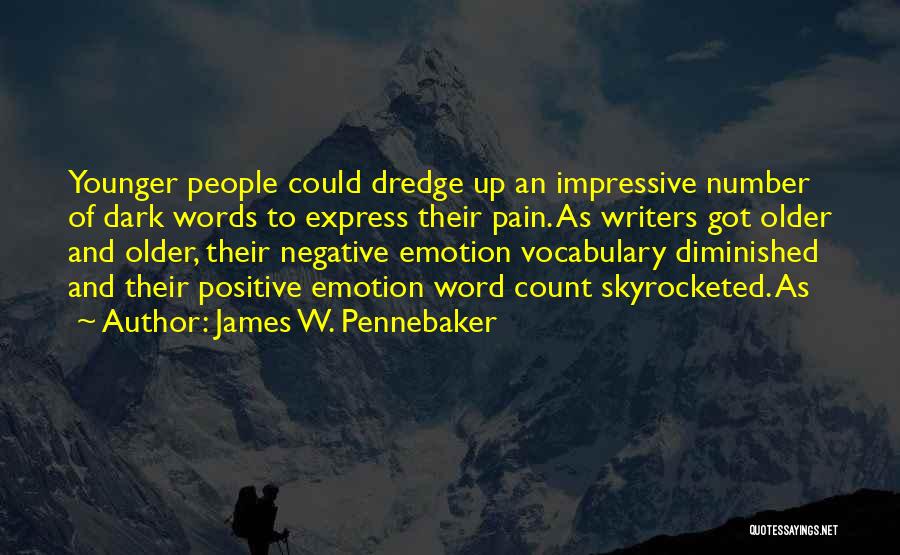
Younger people could dredge up an impressive number of dark words to express their pain. As writers got older and older, their negative emotion vocabulary diminished and their positive emotion word count skyrocketed. As — James W. Pennebaker






